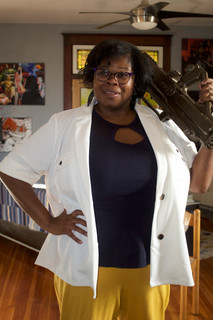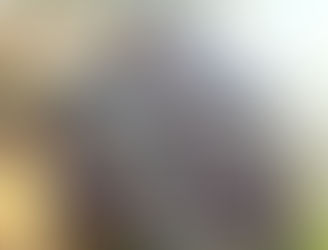Model Behavior: Becoming Fat Mucket
- messedcomics
- Oct 2, 2020
- 3 min read
Updated: Oct 6, 2020

Writer/editor Aiesha D. Little serves as the character model for Fat Mucket in the upcoming season of MeSseD! In this post, she talks about seeing herself on the comic book page. When I was in the seventh grade, a boy in my class, one of the biggest bullies in school, drew an incredibly detailed sketch of how ugly he thought I was. In his depiction, my lips were chapped and cartoonishly large, bushy eyebrows crowded my forehead in a unibrow formation, and he gave me a moustache that nearly rivaled that of Wallace and Walter Scott of The Whispers. Now, buoyed by the distance that time inevitably creates, I can honestly say that he could’ve been a pretty decent artist. However, 13-year-old me saw that drawing and felt nothing but embarrassment, the hot shame of being publicly humiliated prickling my spine. At that age, I was far too young to understand terms like “colorism,” “fatphobia” and “sexism,” and how these things would shape my life for years to come. But as time went on, the memory of seeing myself drawn in such a way still lived on in my bones.

In the last eight years, I’ve become so much more comfortable with seeing myself on screen in some way, whether in video, in photos or in drawings. I made the decision early on that if I was going to continue to do cosplay, I had to get comfortable with a certain amount of feeling “on display.” As such, I’ve put myself in situations that I couldn’t have imagined 15 or 20 years ago. I’ve left my house in costume in full view of my neighbors. I’ve gone to restaurants in costume. I’ve gone shopping in costume. Hell, I’ve gotten my oil change while in costume. You can’t do any of that and spend a lot of time worried about what other people think of you. That’s why I fully credit cosplay for my decision to serve as Fat Mucket’s character model for MeSseD’s upcoming season. I had no reservations when Jay Kalagayan asked if I was interested in meeting with Dylan Speeg to model for the character. He pitched her to me as a “bad ass Amanda Waller-type” and as a visibly fat person who had grown to appreciate her own visual aesthetic, I’ve afforded the same respect to “The Wall” over the years. She’s also a take-no-shit kind of person in the way that Black women often are forced to be, a characteristic with which I can definitely relate.
So last December, Dylan invited me over to his house and took photos of me that he would then use to illustrate Fat Mucket. It wasn’t until after the shoot was done that the doubt started to kick in. In the week between the photos being taken and him sending me a few illustrations, I was in the seventh grade again. What if Dylan makes her ugly? momentarily bounced around in my head, which became, What if Jay is writing something that makes her ugly? It’s not like the thought was unwarranted. Creators of all colors, creeds and stripes use Black women’s bodies as their own personal punching bags. They make them the butt of every joke imaginable, the containers for housing all kinds of violence, no matter how disgusting (see Black Nerd Problems’ “Dark Skinned Black Women are Not Your Scapegoats for Aggression” post for more context). They do everything in their power to make Black women aggressive, unlikeable, and unattractive so that when they’re hurt, killed or maimed, you as an audience member don’t have to care about them. And that’s the result when creators think of Black women enough to give them lines. Otherwise, they’re wallpaper onto which they etch all of their assumptions and stereotypes.
All of this was on my mind when that first illustration came through. I opened the email from Dylan, hoping for the best; all I saw was…me. I could imagine my facial expressions, my movements, my stature, paired with Fat Mucket’s words on MeSseD’s pages. I liked what I saw and I could feel good about modeling for this character. I could feel excited about sharing with people that my likeness would be in a comic book. Mucket’s not my creation and she’s only playing a small part in a much bigger story but when I look at those illustrations, she feels like me. That’s high praise coming from someone who took a long time to truly see herself.
Aiesha Little is a lover of jazz music, steampunk, cosplay, and all things geeky. You can find her work at www.aieshadlittle.com.






























































Comments